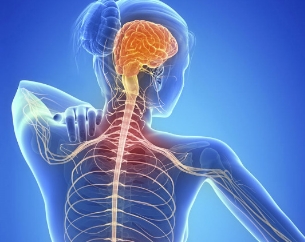Common symptoms include numbness or sensory loss, paraesthesia in limbs or face, vision loss, weakness in one or more limbs, double vision, imbalance while walking, and bladder problems such as difficulty holding or passing urine…reports Asian Lite News
Young adults and women are more likely to suffer from multiple sclerosis, said experts on Saturday.
Multiple Sclerosis (MS) is a complex, chronic, autoimmune, and neurological disease that primarily affects the central nervous system, leading to a range of symptoms and health issues.
Data from the World Health Organisation (WHO) estimate that over 1.8 million people worldwide live with MS.
The prevalence of MS in India ranges from 7 to 30 per 100,000 people, according to various studies.
“MS can strike anyone at any age, however, persons between the ages of 20 and 40 are the ones who are diagnosed with it most frequently. Women are disproportionately affected since they are two to three times more likely than men to have the condition,” Dr. Himanshu Champaneri Senior Consultant- Department of Neurosciences and Neurosurgery, Marengo Asia Hospitals, Gurugram, told.
Common symptoms include numbness or sensory loss, paraesthesia in limbs or face, vision loss, weakness in one or more limbs, double vision, imbalance while walking, and bladder problems such as difficulty holding or passing urine.
In addition, some patients experience a current-like sensation running down the spine with neck movements.
These symptoms typically develop over a few days to weeks, differentiating them from stroke symptoms, which have a rapid onset within seconds to minutes.
Dr Neeraj Balaini, Consultant – Neurology, Aster RV Hospital, told IANS that the exact cause of MS is not fully understood.
“Risk factors for MS include genetic predisposition, certain viral infections (such as Epstein-Barr virus and Human herpes virus-6), smoking, and vitamin D deficiency,” he said.
The doctor further explained that in MS, there is a loss of myelin — the insulating covering around nerves in the brain and spinal cord.
This demyelination disrupts the electrical signals in the nerves, leading to the various symptoms of MS.
“Severe myelin damage can also result in the loss of nerve fibres themselves,” Dr. Neeraj said.
“MS is treatable but not curable. Without treatment, patients may accumulate disabilities from repeated attacks or enter a progressive phase where disability increases gradually without new attacks.
“Clinical depression is more frequent in people with MS due to both the psychological impact of the disease and potential neuroendocrine changes caused by MS,” he noted.
Along with medications, the experts stressed a balanced diet and healthy lifestyle to manage MS.
Eating a healthy and nutritious diet, managing weight, avoiding alcohol and tobacco, maintaining a balanced diet, ensuring good sleep hygiene, and managing hypertension and diabetes, can help preserve healthy neurons and support overall health.
Physical exercise is also important in managing MS and improving quality of life.
In addition, “taking preventative measures to avoid infections may be helpful as some viral infections are known to trigger MS and genetic counselling may be helpful for those with a family history of the disease,” Dr. Himanshu said.
ALSO READ-Emelia’s Pasta: Authentic feel-good Italian Restaurants in London







